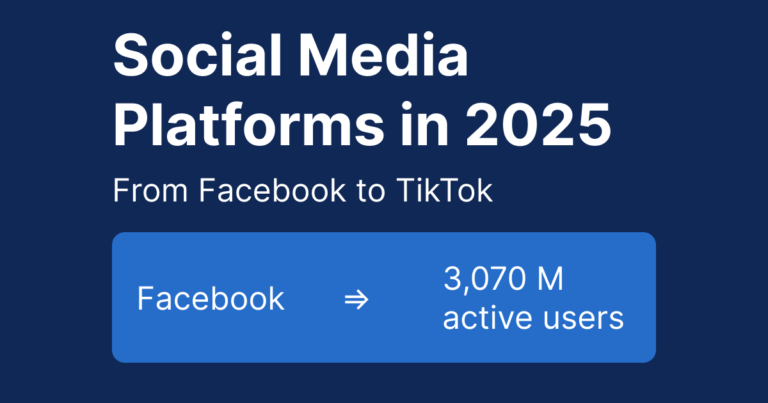The Best Time to Post on Quora in 2025

Quora is not your typical social media platform — it’s a knowledge-sharing community built on thoughtful questions and detailed, informative answers. Whether you’re an expert looking to build authority, a marketer aiming to drive traffic, or simply someone who loves sharing knowledge, when you post on Quora can significantly impact how your content performs.
In 2025, with increasing content saturation and more sophisticated algorithms, understanding the best time to post on Quora is more important than ever. This in-depth blog post will explore when and why timing matters on Quora, backed by user behavior trends, platform mechanics, and strategic insights.
Why Timing Matters on Quora
On Quora, answers don’t disappear in a feed as quickly as on platforms like Twitter or Threads. Content can resurface weeks or even months later due to Quora’s search functionality and recommendation engine. Still, timing plays a vital role in initial visibility, early engagement (upvotes, shares, follows), and positioning within a question thread.
Here’s why:
-
Early Engagement is a Signal: Quora’s algorithm considers how quickly your answer gets engagement. The sooner it’s interacted with, the more likely it is to rank higher within a thread or show up in Quora Digest emails and recommendations.
-
Digest Distribution Timing: Quora Digest (email newsletter) is personalized but time-sensitive. Posting when more users are active increases your chances of being featured.
-
Search and Discovery: Quora answers are indexed by Google. Posting at peak times increases engagement and can boost SEO performance in search results.
Quora’s Audience Behavior in 2025
Understanding user behavior on Quora is essential to determining the best times to post. Based on data trends and usage patterns, here’s what we know:
-
User Demographics: Quora’s user base is largely professionals, students, and knowledge seekers. These individuals are most active during weekday working hours and in the evenings.
-
Time Zone Considerations: The majority of Quora’s traffic comes from the United States and India. If your audience is global, consider the overlap in active hours across time zones.
-
Device Usage: A growing percentage of users access Quora via mobile. This affects when they browse — often during commutes, breaks, or late evenings.
The Best Days to Post on Quora
Let’s look at which days offer the highest potential for visibility and engagement.
1. Tuesday to Thursday: The Golden Window
Midweek is when Quora sees its most consistent activity. Users are settled into their weekly rhythm, productivity is high, and they’re more likely to engage in thoughtful reading and responding.
-
Why it works: This window aligns with work schedules and research time. B2B topics, tech, career advice, and professional development content tend to perform best during these days.
2. Monday: Rebound Day
Monday is often a planning day. While mornings are quiet, engagement ramps up in the afternoon and early evening as users settle into the week.
-
Best for: Motivation, productivity hacks, work-life balance, and planning-related content.
3. Friday: Light But Niche
Fridays see a slight drop in overall activity but can still work for lighter content or niche topics. If you write about entertainment, weekend projects, or philosophical musings, Friday can be a good day to publish.
4. Weekends: Mixed Bag
Weekends can go either way. Some users take breaks, while others dive into long-form reading. Weekend success depends heavily on your topic and audience.
-
Saturday: Better for deep-dive answers, self-improvement, and thoughtful opinion pieces.
-
Sunday: Can be strong if posted in the morning. Many users prep for the week and look for reflective or planning content.
The Best Time of Day to Post on Quora
Now let’s break it down by time of day, using EST (Eastern Standard Time) as the reference, which covers the largest English-speaking audience segment.
Morning (8:00 AM – 11:00 AM EST)
-
Peak activity begins here.
-
Users check Quora during their morning coffee, commute, or while settling into work.
-
Ideal for topics related to productivity, career growth, and news commentary.
Midday (12:00 PM – 2:00 PM EST)
-
Engagement remains strong during lunch breaks.
-
Answers posted now may benefit from a steady stream of afternoon readers.
-
Great for snackable content and short answers that deliver quick value.
Afternoon (2:00 PM – 5:00 PM EST)
-
Activity slows slightly but remains stable.
-
Best for evergreen topics or longer-form responses that will be picked up later.
Evening (6:00 PM – 9:00 PM EST)
-
Second wave of engagement.
-
Many users return after work and read longer content.
-
This is ideal for opinionated or storytelling-style answers.
Late Night (10:00 PM – 1:00 AM EST)
-
Niche but still viable.
-
Night owls and international audiences may engage at this time.
-
Best for creative, philosophical, or emotionally resonant content.
Topic-Based Timing Strategy
Different niches perform best at different times. Here’s a breakdown by category:
| Topic | Best Time to Post |
|---|---|
| Career/Jobs | Tue–Thu, 8–11 AM |
| Technology | Wed–Fri, 9 AM–1 PM |
| Self-Improvement | Weekends, 10 AM–2 PM |
| Finance/Investing | Weekdays, 8 AM–12 PM |
| Relationships | Evenings, 6–9 PM |
| Health/Fitness | Mon–Thu, 6–9 PM |
| Philosophy | Late night or weekends |
| Education/Academics | Mon–Fri, 9 AM–2 PM |
Use this chart as a guide, then tailor based on your unique audience and insights from your content performance.
Using Quora Analytics to Optimize Timing
Quora offers some performance data for users, especially if you’re using the Quora Partner Program or running Quora Ads. Here’s how you can use that to refine your posting schedule:
1. Monitor Upvote Velocity
Check which answers get the most upvotes early. Take note of the time and day you posted, and look for trends.
2. Track Answer Views
Quora shows view counts per answer. Identify what time your most-viewed answers were posted.
3. Use Google Analytics (for linked content)
If you’re linking out to blog posts or landing pages, use UTM parameters to track traffic from Quora and see when it spikes.
Advanced Strategies: Timing + Answer Ranking
The time you post affects whether your answer appears near the top of the thread. Here’s how to combine timing and answer quality for better ranking:
-
Be First, But Be Good: If you post early (e.g., within minutes of a new question), your answer has a better shot at ranking—if it’s high-quality.
-
Refresh Old Threads: Add answers to older questions that are still trending. Use off-peak hours to dominate those questions with less competition.
-
Answer When Others Sleep: Target non-U.S. time zones with niche content during your nighttime hours. This helps you stand out to audiences in India, Australia, or Europe.
Tools That Can Help
There aren’t many dedicated tools for Quora scheduling (unlike other platforms), but you can still streamline your process:
-
Google Trends: Understand when certain topics are gaining interest.
-
Quora Spaces: Watch when posts get the most reactions in your space.
-
Content Calendars: Use Notion, Trello, or Buffer for timing consistency.
Conclusion
Posting at the right time on Quora can amplify your content’s reach, engagement, and authority. While Quora rewards quality over quantity, the impact of when you post shouldn’t be overlooked — especially in 2025, where content competition is fierce and attention spans are short.
To recap:
-
Best Days: Tuesday to Thursday
-
Best Times: 8 AM–11 AM and 6 PM–9 PM EST
-
Consider Your Audience and Topic: Timing varies based on niche and reader habits
-
Use Data: Track what works and refine
Ultimately, your goal should be to align timing with thoughtful, high-value answers. Combine that with consistency and strategic topic selection, and you’ll not only boost your Quora presence but build lasting influence.






